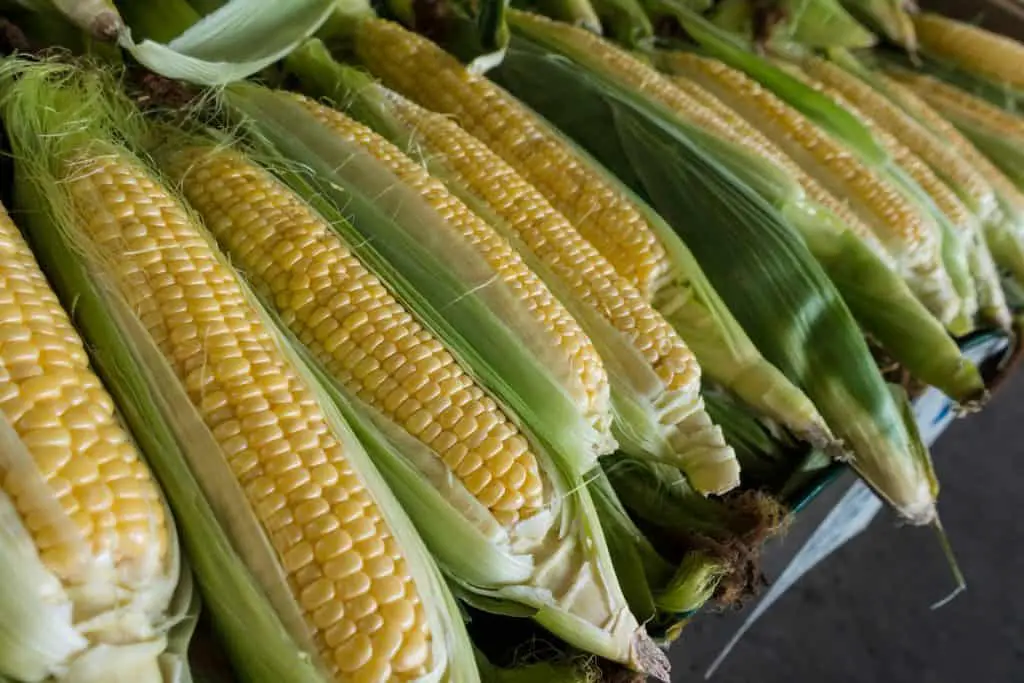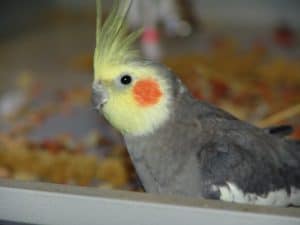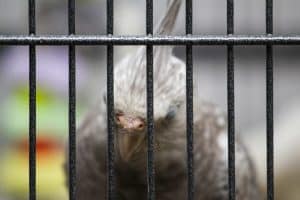Cockatiels are fascinating pets that are known for their playful, affectionate, and sociable nature. As owners, we want to ensure that our feathered friends receive a healthy and balanced diet to keep them happy and healthy. One food item that has been the subject of debate among bird owners is corn.
Many people wonder if it is safe for cockatiels to eat corn, and if so, how much they can eat. In this blog post, we’ll explore the answer to the question “Can cockatiels eat corn?” and provide insight into the health benefits and potential risks associated with feeding corn to these wonderful birds. So, if you’re curious about this topic, keep reading!
Can Cockatiels Eat Corn?
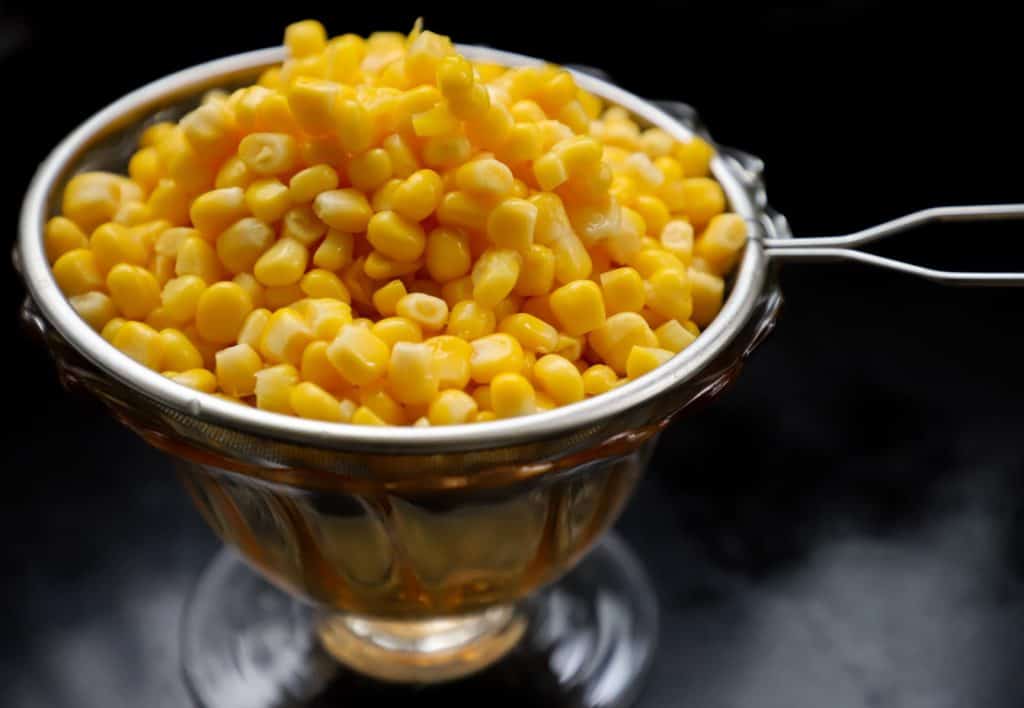
The answer to this question is yes, cockatiels can eat corn. Corn is not toxic to cockatiels, and it provides them with some essential vitamins and minerals.
Raw corn: While raw corn can be a great snack for cockatiels, it should be given in moderation. Corn is high in carbohydrates, so too much of it can quickly lead to weight gain. When feeding corn to your pet bird, make sure that you are only offering a few kernels at a time.
Cooked corn: Cockatiels can eat cooked corn, and cooking corn helps to make it easier for cockatiels to digest, so it is generally better to offer cooked corn than raw. It can be boiled, steamed or even microwaved. When feeding cooked corn to your bird, make sure that the kernels are not too soft and mushy, as this can be difficult for your pet bird to swallow.
Canned corn: Canned corn should be avoided as it often contains added ingredients such as sugar and salt, which can be harmful to birds.
Corn on the cob: Corn on the cob is a delicacy that cockatiels simply can’t get enough of! Whether it’s raw or cooked, corn on the cob is a great treat for your pet bird. You can offer corn on the cob as a snack or meal. Just make sure to remove any large, hard kernels before letting your bird enjoy it. Corn cob also provides an excellent source of fiber to help with digestion.
How much corn should I feed my cockatiel?
Corn should be fed sparingly to your cockatiel and only offered in small amounts as an occasional treat. As with any other food item, it is important to monitor your cockatiel’s intake of corn and adjust their portion size accordingly. Generally speaking, no more than a teaspoon or two of corn should be fed per day.
Nutritional Value of Corn for Cockatiels
Corn is an excellent source of carbohydrates, fiber, and some vitamins and minerals. These nutrients can be beneficial for cockatiels and provide them with energy, help regulate their digestion, and support their immune system. However, corn should not be relied upon as the primary source of nutrients in a cockatiel’s diet. Instead, it should be offered in moderation as a supplement to other staple foods, such as seeds, fruits, and vegetables.
Risks of Feeding Corn to Cockatiels
While corn can offer some benefits to cockatiels, it also has potential risks associated with consuming too much. Overfeeding corn can lead to digestive problems, as it is a starchy food that can be difficult for cockatiels to digest. Additionally, consuming too much corn can lead to obesity and other health problems, as it is high in calories and low in essential nutrients.
How to Safely Feed Corn to Cockatiels
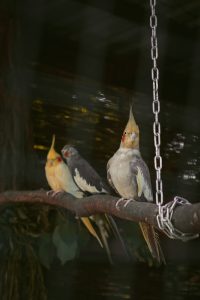
If you are interested in incorporating corn into your cockatiel’s diet, it is essential to do so in moderation. The best type of corn to feed cockatiels is fresh or frozen corn on the cob, as opposed to canned or processed corn.
Cockatiels should be offered only a small portion of corn at a time, and it should be offered as a supplement to other staple foods in their diet. It is also a good idea to consult with a veterinarian to ensure that feeding corn to your cockatiel is safe and appropriate for their specific needs.
Tips on how to safely introduce new foods into your bird’s diet
1. Start slow: Introduce small amounts of new foods to your bird one at a time, allowing them to adjust to the flavor and texture before introducing more.
2. Offer variety: Offer a variety of healthy foods in different textures and flavors to ensure that your bird is getting all the nutrients they need.
3. Monitor closely: Watch your bird closely after feeding them new foods to ensure that they do not have any negative reactions.
4. Consult with a veterinarian: If you are unsure about offering certain foods or if your bird exhibits any unusual behaviors, contact a vet for advice and guidance.
5. Be patient: Some birds may take time to adjust to new foods. With patience and a positive attitude, you can help your bird learn to enjoy a variety of healthy, nutritious foods.
What should contain a cockatiel’s diet?
A balanced and healthy diet is essential to ensure the health and longevity of your pet cockatiel. A cockatiel’s diet should contain a variety of foods including fresh fruits and vegetables, fortified pellets, seeds (particularly millet), legumes, nuts, grains, and small amounts of cooked eggs, meat and dairy. It is important to avoid feeding sweets, processed foods, or fatty snacks as they can lead to obesity and other health complications. Additionally, cockatiels should always have access to a fresh supply of clean water.
Final Thoughts: Can Cockatiels Eat Corn?
Yes, cockatiels can eat corn, but only in moderation. Fresh or frozen corn on the cob is the best type of corn to feed cockatiels, as it is less likely to contain added ingredients that may be harmful to birds. As with any other food item, it is important to monitor your bird’s intake of corn and adjust its portion size accordingly. Additionally, corn should only be fed as a supplement to other staple foods in their diet, and it is important to consult with a veterinarian before introducing any new foods into your bird’s daily diet.
Other suggested articles:
